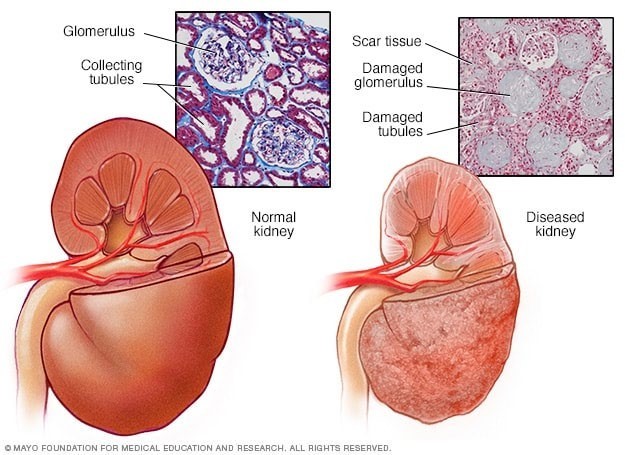A nurse is reinforcing teaching with a client who is undergoing radiation therapy to the neck.
Which of the following instructions should the nurse include in the teaching?
Avoid exposing the neck to the cold.
Eat three large meals each day.
Cleanse the neck by rubbing with a washcloth.
Limit fluid intake to 750 mL per day.
The Correct Answer is A
Radiation therapy can cause increased sensitivity and dryness in the skin. Exposing the neck to cold temperatures may exacerbate these symptoms and potentially lead to discomfort or skin damage. Encourage the client to keep the neck covered and warm, especially when going outside in cold weather.
While proper nutrition is important during radiation therapy, the specific instruction to eat three large meals each day is not necessarily applicable or beneficial. It is generally recommended to have a balanced and nutritious diet, which may include smaller, frequent meals or snacks if the client's appetite is affected.
During radiation therapy, the skin in the treatment area can become sensitive and prone to irritation. Rubbing the neck vigorously with a washcloth can further irritate the skin. Instead, advise the client to gently cleanse the neck using a mild, non-irritating soap and patting the skin dry with a soft towel.
While radiation therapy can cause certain side effects, such as dry mouth or difficulty swallowing, it is generally not necessary to restrict fluid intake unless specifically advised by the healthcare provider. Adequate hydration is important for overall health and well-being, and the client should be encouraged to drink enough fluids unless instructed otherwise.
Nursing Test Bank
Naxlex Comprehensive Predictor Exams
Related Questions
Correct Answer is A
Explanation
As a nurse, it is important to respect the client's autonomy and right to make decisions about their own care. The decision to stop dialysis treatment is a personal one and should be respected by the healthcare team. The nurse should support the client's decision and provide information and resources to help the client manage symptoms and maintain comfort during the end-of-life process. It is not appropriate for the nurse to suggest that the client discuss the decision with her family or discuss alternative treatment methods, as these decisions should be made by the client in conjunction with their healthcare provider. It may be appropriate to offer spiritual or emotional support to the client, but this should be based on the client's preferences and not imposed upon them by the healthcare team.

Correct Answer is A
Explanation
Alcohol withdrawal can often lead to an increase in blood pressure. The autonomic nervous system becomes hyperactive during withdrawal, resulting in increased sympathetic activity, which can elevate blood pressure.
Constipation is not typically associated with alcohol withdrawal. However, chronic alcohol use can affect the gastrointestinal system and lead to digestive issues, including diarrhea or gastrointestinal bleeding.
Polyuria, which refers to excessive urination, is not a typical manifestation of alcohol withdrawal. However, alcohol use can affect fluid balance and lead to changes in urination patterns.
Bradycardia, or a slow heart rate, is not a common manifestation of alcohol withdrawal. Instead, tachycardia (an increased heart rate) is more commonly observed during withdrawal due to the hyperactivity of the autonomic nervous system.
Whether you are a student looking to ace your exams or a practicing nurse seeking to enhance your expertise , our nursing education contents will empower you with the confidence and competence to make a difference in the lives of patients and become a respected leader in the healthcare field.
Visit Naxlex, invest in your future and unlock endless possibilities with our unparalleled nursing education contents today
Report Wrong Answer on the Current Question
Do you disagree with the answer? If yes, what is your expected answer? Explain.
Kindly be descriptive with the issue you are facing.
